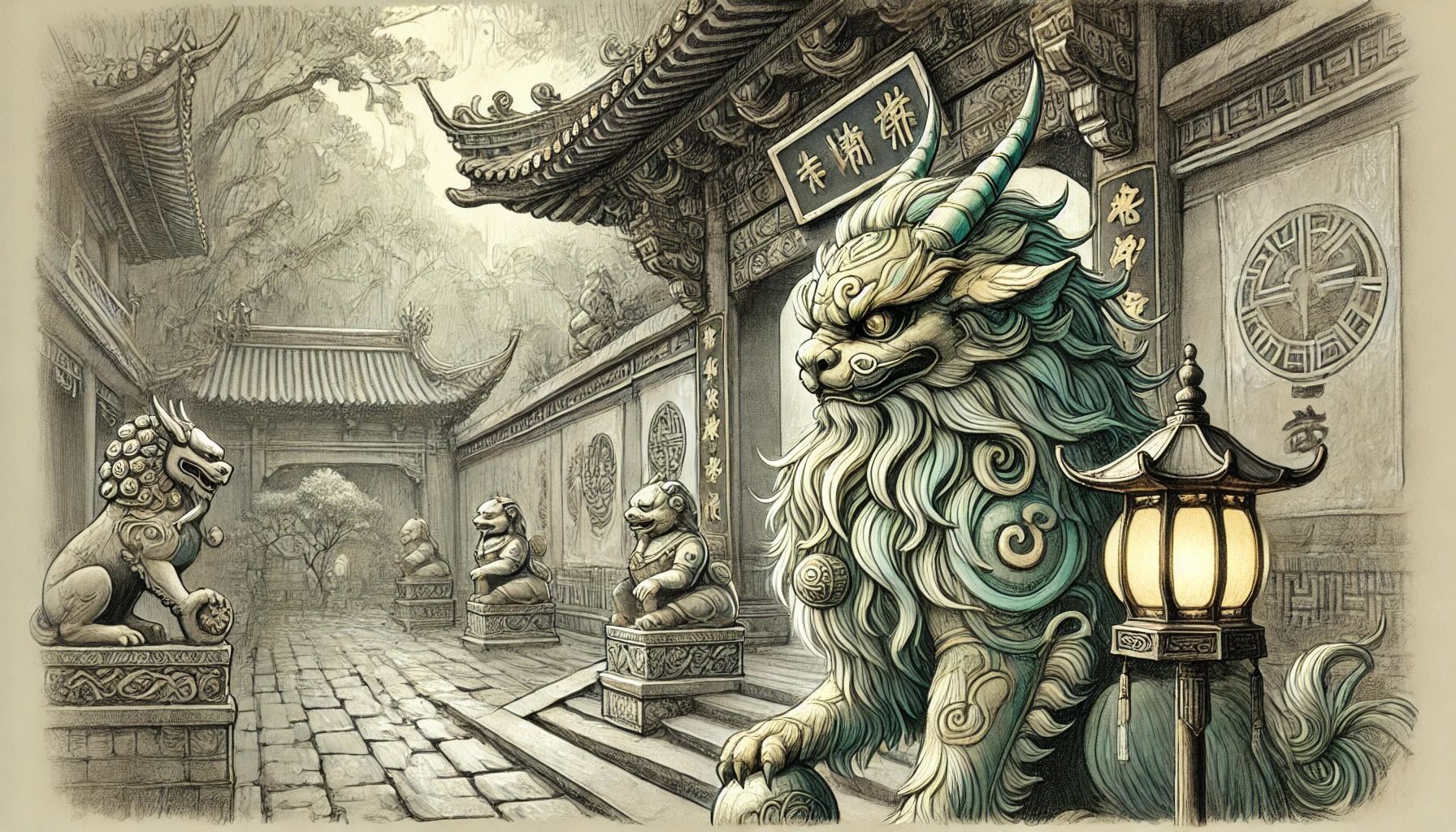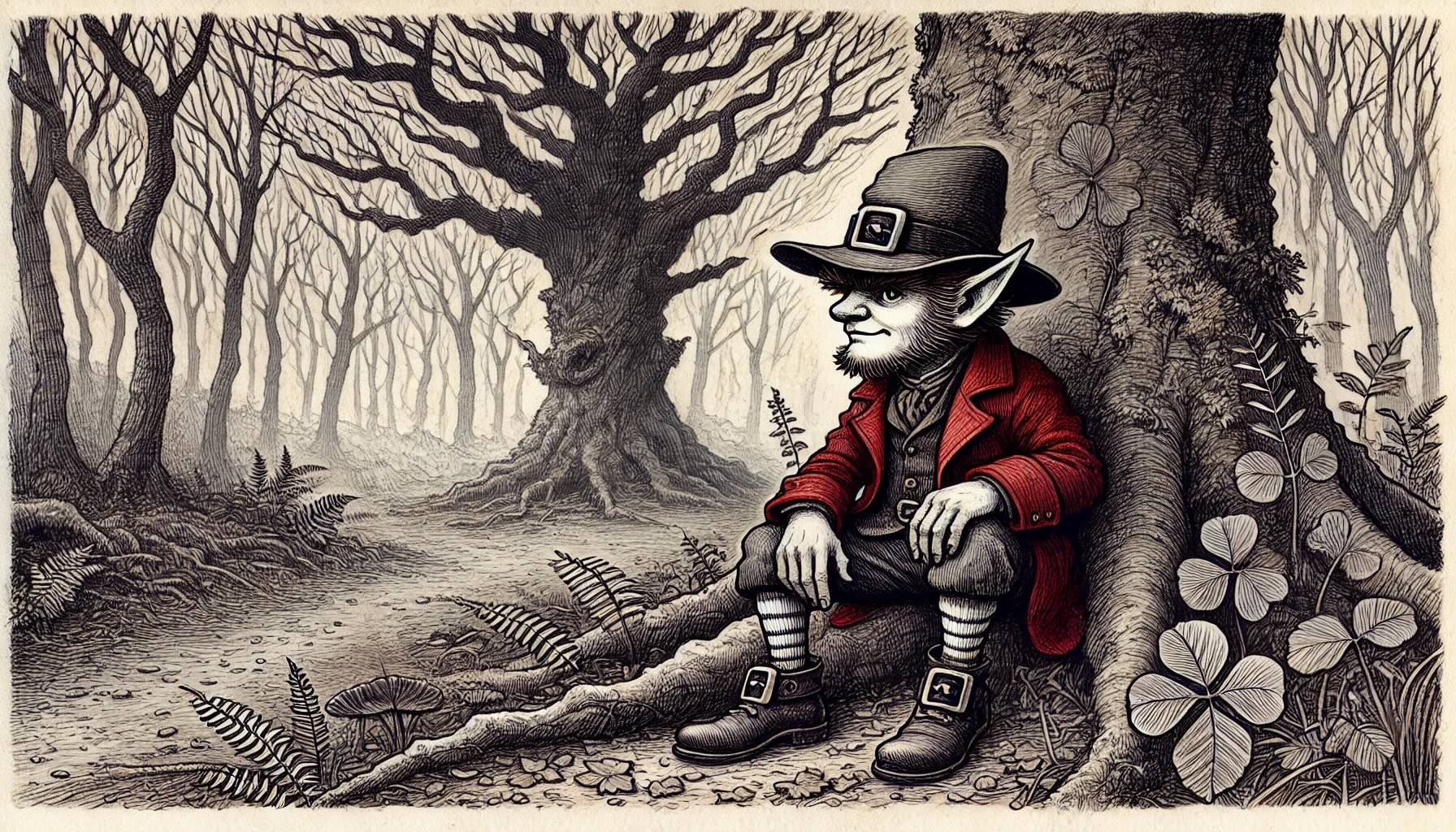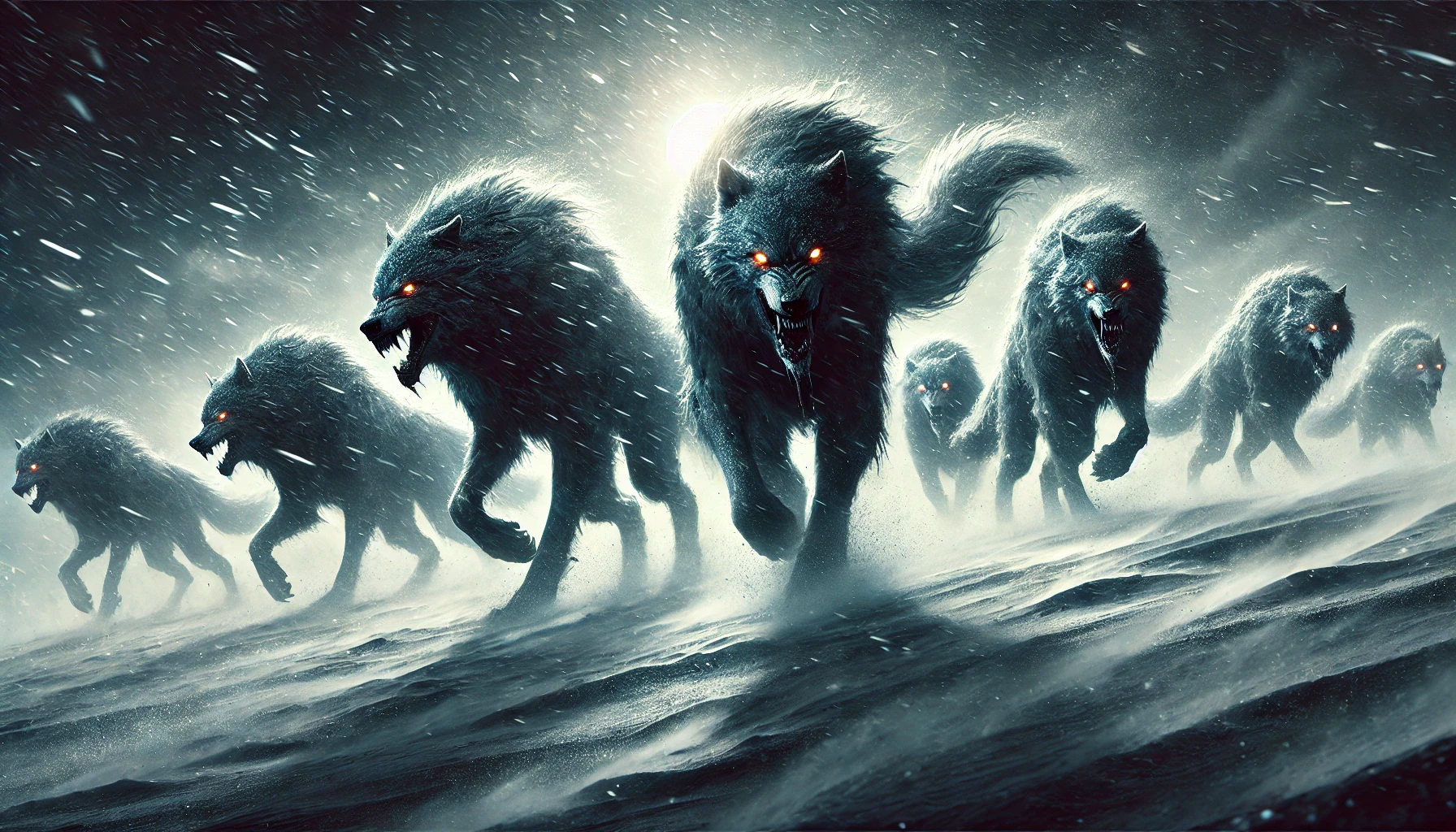Beware the Tengu's Laughter
High in the mist-covered mountains, where the cedar trees bend under the weight of centuries, something watches. You won’t see them at first, but they see you. A whisper of wind through the branches, a sudden shift in the leaves—small signs that might mean nothing in a safer place. But here, in the domain of the Tengu, such signs are a warning. You are trespassing in their realm.
The Faces of the Tengu: Appearance & Traits
Tengu are most often seen as tall, humanoid beings with long noses, sharp eyes, and feathered robes, their massive wings allowing them to soar through the skies. These are the Dai-Tengu, ancient and cunning, known for their trickery and martial prowess.
While most tengu are Dai-Tengu, appearing as humanoid figures with long noses and powerful wings, some legends speak of Karasu-Tengu, crow-like beings that are lesser in stature and more chaotic. While they are often seen as messengers or scouts for their more powerful brethren, some stories suggest that the most cunning Karasu-Tengu may take on greater wisdom and power over time. Tengu can sometimes take on disguises or illusions, but they are most commonly depicted as either humanoid Dai-Tengu or crow-like Karasu-Tengu, each with its own role.
The most well-known depiction of tengu is the Dai-Tengu, towering figures with red faces, sharp eyes, and an air of superiority. Their expressions promise both wisdom and danger, making it unclear whether they will guide or torment those who cross their path.
The tengu’s wings grant them mastery over the mountain winds, making them swift and elusive. Their sharp claws, though formidable, are often used more for intimidation than direct combat. Most recognizable is their elongated nose, a mark of their unnatural origins. Those who have seen them up close say the length of a tengu’s nose reflects its age and cunning—the older, the trickier.
But their most dangerous trait isn’t their talons or their speed—it’s their mind. Tengu are cunning, unpredictable, and playful in a way that often turns deadly. They are tricksters, delighting in leading travelers astray, confusing monks, and humbling warriors who think too highly of themselves.
Whispers from the Mountains: Stories & Encounters
Many who venture into the mountains never return. Those that do speak in hushed tones of strange figures watching from the trees, of mocking laughter just out of sight, and of paths that twist impossibly back upon themselves.
One such tale is told of Daichi the Proud, a warrior who sought to test his skills against the spirits. He climbed the slopes of Mount Hakurei, boasting that no demon nor ghost could best him. The tengu watched. They listened. And they decided to play.
Daichi’s steps grew heavy as the air itself seemed to warp around him. The path twisted in ways that seemed impossible—landmarks moved, trees shifted, and what should have been a straight route coiled like a serpent. He walked for hours, yet somehow always found himself back at the same ancient cedar. Frustration turned to anger, anger to desperation. He drew his sword, slashing at the trees, screaming into the silence. And then—a voice behind him.
"Lost, are you?" The tengu loomed above him, grinning.
No one knows what happened after that. When they found Daichi days later, he was muttering nonsense, his proud warrior’s spirit broken. He never lifted a sword again.
Another story tells of Aiko the Weaver, a humble woman who once offered food at a forgotten shrine deep in the mountains. The tengu, intrigued by her generosity, led her safely home when she wandered too far. Ever since, the village leaves offerings in her honor, hoping to earn similar favor.
Sacred Peaks & Hidden Shrines: The Tengu’s Domain
Tengu dwell in high mountain forests, where mist clings to the trees and silence stretches unnaturally long, broken only by the occasional rustle of unseen wings. These peaks are sacred, untouched by human hands, and those who step too far risk invoking their wrath.
They prefer ancient, towering trees and hidden mountain shrines, where they perch like watchful guardians—or tormentors. If the wind shifts strangely, if the birds go silent, beware. The tengu are near.
Tricksters, Warriors, & Spirits of the Wind: Tengu Abilities
Tengu are neither fully malevolent nor fully benevolent. They are arrogant, believing themselves superior to mortals, and they have little patience for those who do not respect them. But they are also bound by their own twisted sense of honor.
- Tricksters of the Wilds: Tengu delight in illusions and deception. They might lead travelers in circles, steal belongings only to return them in impossible places, or mimic voices to confuse and mislead.
- Martial Masters: Some tengu are legendary swordfighters, and those few warriors deemed worthy may even be trained by them. But earning a tengu’s favor is no easy feat.
- Masters of Wind & Shadow: Tengu command the wind, stirring up storms or vanishing in a swirl of leaves and mist.
Above all, tengu have little tolerance for arrogance, for to them, a boast is like the buzzing of an insect—irritating, foolish, and certain to bring misfortune. Some legends say tengu were once arrogant monks or warriors who, after death, were cursed to roam the mountains. Others claim they have always been spirits of the wind and forest, existing beyond human understanding. Others claim they have always been creatures of the wind and forest, watching over mortals with mischievous intent, forever bound to mock and test those who follow in their footsteps.
Surviving the Tengu: Warnings & Precautions
- Never speak ill of the tengu in their domain. Even the whisper of a boast or insult can bring misfortune.
- If you get lost in their woods, stop moving. The more you struggle, the more they’ll play with you. Instead, leave a small offering—sake, rice, or a trinket—to appease them.
- If a tengu speaks to you, choose your words carefully. A clever answer may earn their amusement. A foolish one may earn their wrath.
- Look for subtle signs. A feather on the path, laughter on the wind, a shadow that moves too quickly—these mean you are being watched.
The story of Masaru the Merchant serves as a warning—when he ignored the signs and boasted of his cleverness, the tengu stole his voice, returning it only after a year of silence and humility.
Final Warnings & Parting Wisdom
To some, the tengu are mere nuisances, spirits of mischief best avoided. To others, they are guardians of hidden wisdom, protectors of the mountains, and reluctant teachers to those who prove themselves worthy.
What is certain is this—if you ever find yourself lost in the mountains, and you hear laughter on the wind, do not call out. Do not challenge. And whatever you do, do not boast.



